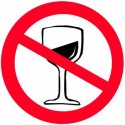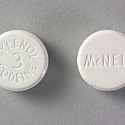Accurate Native history is critical to sobriety and recovery, program finds
White Bison Inc. is a 20-year-old Native nonprofit organization that focuses not only on alcoholism recovery but also on the ways in which a history of colonization contributed to addiction in the American Indian community.
Operating from a modest office on a quiet street, White Bison reaches Native communities well beyond this city south of Denver that is home to Focus on the Family and the North American Aerospace Defense Command.
One of White Bison’s key programs is the Wellbriety Movement, which extends past sobriety into the talking circles of its multicultural, cross-country Hoop Journeys, firestarter circles for local sobriety efforts, and other grassroots, culturally based programs and practices.
Central tenets of the organization are contained in White Bison’s “The Red Road to Wellbriety in the Native American Way,” a 12-step program adapted from Alcoholics Anonymous’ Big Book. The book has personal recovery stories chronicling the lives of Native addicts from various communities and walks of life.
In many ways, the organization reflects experiences of its founder and president, Don L. Coyhis, Mohican, who addresses Native history in “Alcohol Problems in Native America: The Untold Story of Resistance and Recovery-the Truth About the Lie,” which he co-authored with William L. White, a senior research consultant for Chestnut Health Systems.
Provided with an accurate history of North America, Native people can heal from alcoholism and other illnesses that result from colonization’s legacy of intergenerational trauma, Coyhis said. “The truth about what happened to us is very important, but the story wasn’t told. I found out the truth about the lie.”
“It is time Indian people rejected alcohol, not because some Indians develop alcohol problems and alcoholism, but because alcohol is a symbol of efforts to exploit and destroy us as a people,” the book states.
Coyhis said the result of silence about intergenerational trauma is similar to the effect of messages passed on by dysfunctional families.
He likens the result of silence about community trauma to the effect of messages in dysfunctional families. “I grew up thinking I was no good, not good enough, not very smart. When I found out I wasn’t dumb, everything changed – relationships, jobs I applied for, just everything.”
The same can be true for communities when the truth is known about the history of colonization, he said, but errors about what happened are often perpetuated by schools, Native studies programs, other institutions and communities. “You may question them and they’ll tell you there’s something wrong with you.”
“When we researched Native alcoholism, we found that a number of myths were being taught,” Coyhis said. “One of them is that ‘something is wrong with our immune systems’ compared to Europeans. It’s not true – there’s been a study done on our immune system.”
Another myth is that Indians “go crazy with alcohol,” but boarding schools, taking children away from their families, and other losses are the real culprit. “What surfaces is an organized assault by government on our community.
By 1920, 99 percent of American Indian people had been wiped out and small groups were left with nowhere to go, “except future generations didn’t know that because the story wasn’t told,” in the resulting climate of shame and sorrow.
“If you don’t know about intergenerational trauma, you’ll try to blame everything (about alcoholism) on ‘genetic disparities’ which have never been tested,” he said.
Positive changes have occurred in cities and in reservation communities where there are language immersion programs and cultural revitalization, “after all, one ounce of culture equals 10 pounds of healing,” Coyhis said, and if that is coupled with the practice of spirituality, even greater benefits occur.
In addition to myth-busting, culture and spirituality, “What we were learning is that we need a whole new language. … We’re more colonized than we think.”
For example, when such terms as “war on poverty” or “war on drugs” are used, the elders whom he consults told him that by setting up the conflict “you create an enemy where none exists.”
“How you name something is very, very important,” he said, suggesting that “drug czar” could be “healing czar” and a phrase like, “My name is Don and I’m an alcoholic” could become, “My name is Don and I’m in recovery.”
Everyone has the responsibility to “find the truth, because it’s accurate to say that ‘the truth shall set you free,’” he said.
source: Indian Country Today

